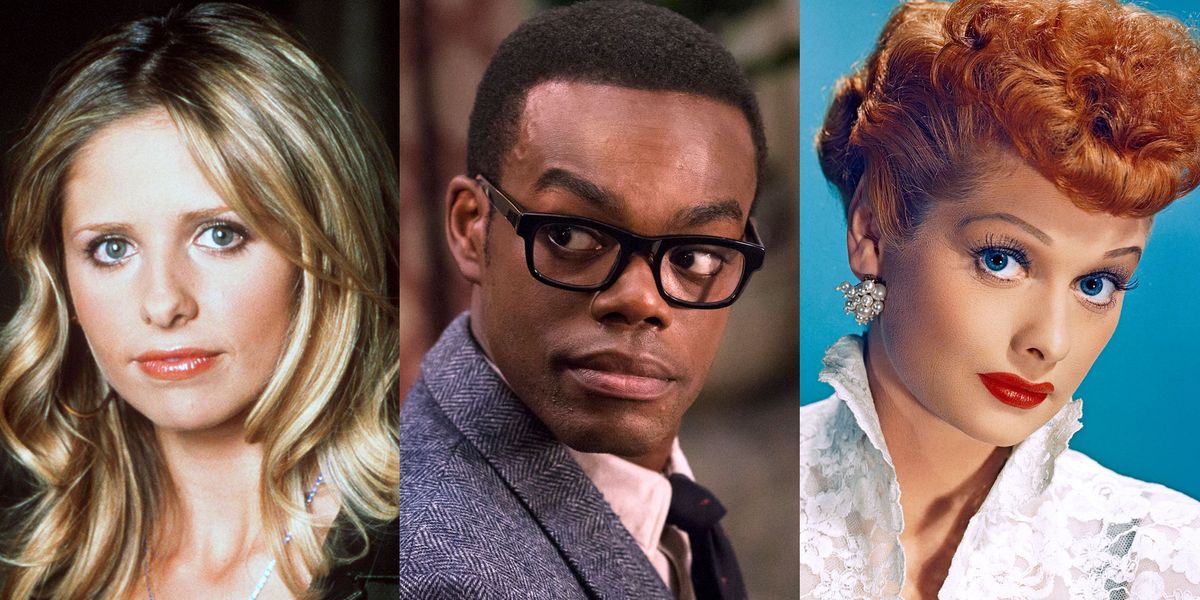10 Iconic TV Series That Changed the Way We View Television

10 Iconic TV Series That Redefined the Small Screen
Television. Once a simple box delivering scheduled programming, it’s now a multifaceted entertainment powerhouse, a reflection of our evolving culture. This evolution wasn’t accidental; it was driven by groundbreaking series that dared to push boundaries, experiment with form, and redefine what television could be. These ten shows didn’t just entertain; they changed the very landscape of the medium.
1. I Love Lucy (1951-1957): The Dawn of the Sitcom
Before Friends or Seinfeld, there was I Love Lucy. Lucille Ball’s groundbreaking sitcom revolutionized television production with its innovative three-camera setup, paving the way for the multi-camera sitcom format that remains dominant today. Beyond the technical innovations, Lucy Ricardo’s relatable struggles with everyday life resonated with audiences, establishing the sitcom as a powerful force in television.
2. The Twilight Zone (1959-1964): Exploring the Unseen
Rod Serling’s anthology series wasn’t just science fiction; it was social commentary wrapped in suspense and the surreal. Each episode, a self-contained story exploring themes of morality, fear, and the human condition, pushed the boundaries of what television could tackle. Its influence can be seen in countless subsequent anthology series and its legacy continues to inspire filmmakers and writers.
3. Star Trek (1966-1969): A Bold Vision of the Future
Star Trek wasn’t just a space opera; it was a progressive social statement. Its diverse cast, tackling issues of racism, sexism, and war long before they were mainstream, made it a cultural phenomenon. Its influence on science fiction, both in television and film, remains undeniable, while its utopian vision continues to inspire hope for a better future.
4. The Mary Tyler Moore Show (1970-1977): The Independent Woman
Mary Richards, a single, career-driven woman in Minneapolis, shattered expectations. The Mary Tyler Moore Show offered a realistic portrayal of a working woman, paving the way for future shows focusing on female empowerment and breaking down gender stereotypes. Its sharp writing and ensemble cast also redefined sitcom dynamics.
5. Hill Street Blues (1981-1987): Gritty Realism on the Screen
Before the anti-hero became ubiquitous, there was Hill Street Blues. This police procedural wasn’t afraid to delve into the complexities of urban life and the moral ambiguities faced by its characters. Its serialized storytelling and complex characters, presented in a gritty, realistic style, revolutionized crime drama television.
6. The Simpsons (1989-Present): The Animated Revolution
The Simpsons transcended its animated origins to become a cultural icon. Its satirical wit, sharp social commentary, and enduring characters resonated with audiences across generations. The show proved that animation could be a powerful medium for complex storytelling and social critique, inspiring countless animated series that followed.
7. The Sopranos (1999-2007): The Anti-Hero Arrives
The Sopranos changed the game. Its exploration of the complex psychology of a mob boss, Tony Soprano, ushered in a new era of television drama, characterized by morally ambiguous characters, complex plots, and serialized storytelling. The show’s impact on television is undeniable, influencing countless dramas that followed.
8. Lost (2004-2010): The Mystery Box
Lost captivated audiences with its intricate mysteries, compelling characters, and stunning visuals. Its serialized storytelling, with interconnected storylines and cliffhangers, redefined how audiences engaged with television, fostering online communities and sparking intense speculation.
9. Mad Men (2007-2015): Style and Substance
Mad Men wasn’t just visually stunning; it was a nuanced exploration of 1960s America, revealing the complexities of its social and cultural landscape. The show’s sophisticated writing, attention to detail, and compelling characters set a new standard for period dramas, influencing the stylistic and thematic approach of countless shows.
10. Breaking Bad (2008-2013): The Anti-Hero’s Transformation
Walter White’s descent into darkness captivated audiences worldwide. Breaking Bad‘s complex characters, intricate plot, and morally ambiguous choices redefined the anti-hero narrative. The show’s success demonstrated the power of serialized storytelling and complex character arcs, pushing the boundaries of television’s thematic scope.
| Show Title | Genre | Key Innovation | Lasting Impact |
|---|---|---|---|
| I Love Lucy | Sitcom | Three-camera setup, relatable everyday life | Established the multi-camera sitcom format |
| The Twilight Zone | Anthology | Social commentary through surreal storytelling | Inspired countless anthology series |
| Star Trek | Science Fiction | Progressive social commentary, diverse cast | Influenced science fiction, promoted social change |
| Mary Tyler Moore | Sitcom | Independent working woman protagonist | Revolutionized portrayal of women in television |
| Hill Street Blues | Police Procedural | Gritty realism, serialized storytelling | Redefined crime drama, complex character development |
| The Simpsons | Animated Sitcom | Satire, social commentary, enduring characters | Elevated animation as a storytelling medium |
| The Sopranos | Crime Drama | Anti-hero protagonist, complex psychology | Ushered in the era of anti-hero television drama |
| Lost | Mystery Drama | Interconnected storylines, serialized storytelling | Cultivated intense audience engagement |
| Mad Men | Period Drama | Style, nuanced exploration of 1960s America | Set new standards for period drama visuals and themes |
| Breaking Bad | Crime Drama | Anti-hero’s transformation, moral ambiguity | Redefined the anti-hero narrative |
These ten shows, while diverse in genre and style, share a common thread: a willingness to experiment, innovate, and challenge the conventions of television. Their impact is undeniable, shaping the television landscape we know today and continuing to inspire creators and audiences alike.

